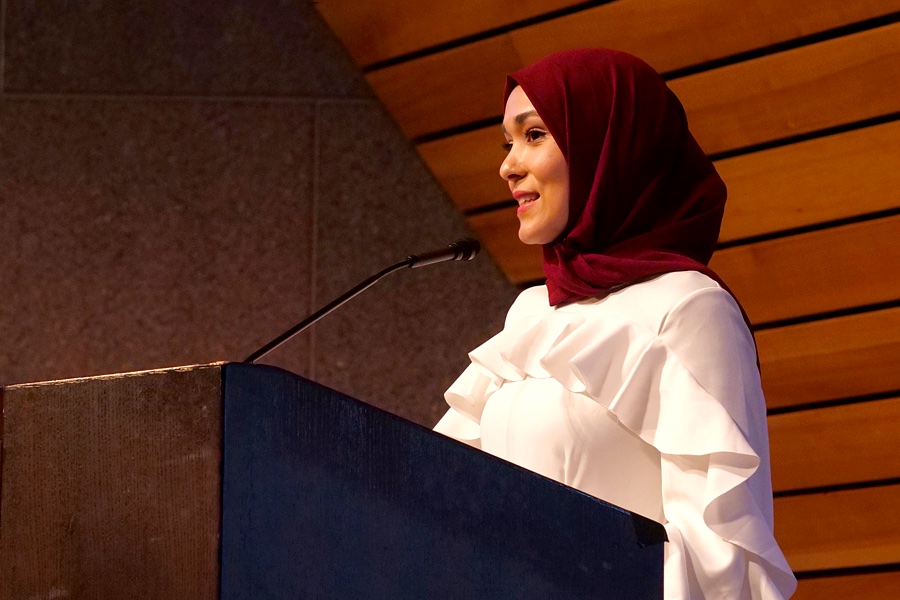
Doctors are often seen as pillars of strength to the sick, the injured, and the dying. But those pillars live in human bodies with minds that also need tending.
Never did those needs become more pressing than during the recent coronavirus pandemic. But early 2020 also saw the founding of the U of M’s Center For the Art of Medicine (CFAM), where doctors, residents and medical students can enrich their work and their connections to patients and each other by sharing their stories.
CFAM directors Maren Olson and Ben Trappey both had already engaged in storytelling in medicine. Olson, associate program director for the pediatric residency at the U of M, and Trappey, assistant professor of medicine and pediatrics, had hosted writing groups, shared poems with their medical staff, and published reflective pieces in medical journals. For example:
In an article for the journal Academic Pediatrics, Olson described her initial reaction to the case of a third-grader who had had COVID-19 but then apparently developed a condition Olson had never encountered.
“How do I diagnose something I've never seen, something I don't really understand? I desperately hope that my masks and face shield hide my rising panic from my team,” she wrote.
Trappey, writing in the journal JAMA Network, revealed his feelings at leaving his pregnant wife to work the opening shift at the state’s first COVID-19-only cohort hospital: “We cried and hoped it would not be the last time we ever touched.”
A need fulfilled
CFAM came about when Medical School Dean Jakub Tolar approached Jon Hallberg, a professor in the Department of Family Medicine and Community Health, about starting a center to elevate the role of arts and humanities in medical education and practice.
Hallberg, who also founded Hippocrates Cafe—a similar, regional Emmy-winning program produced with Twin Cities Public Television—knew that Olson and Trappey were just the pair to direct the center.
Beyond nurturing curiosity and creativity, CFAM strives to “promote diversity, deepen empathy, develop professionalism, and foster resilience in physicians and physicians-in-training,” according to its website.
Olson puts it more directly: “Stories and storytelling are what grounds me in medicine, keeping me ever mindful of why the work we do matters.”
Read the original story on the Medical School website and find links to essays by Olson and Trappey on the CFAM team website.
- Categories:
- Health
- Communication
- Culture and diversity
- Medical




